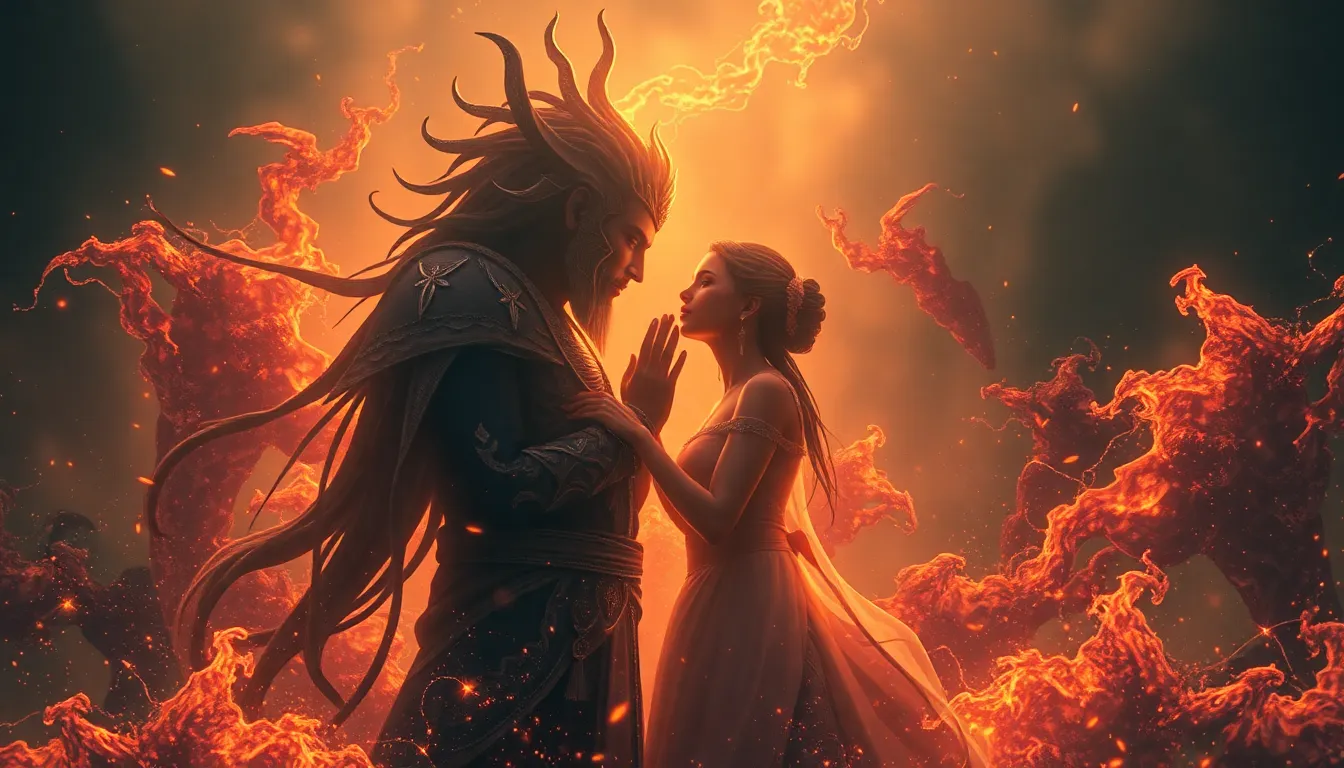The Power of Connection: How Myths Portray Love Across Cultures
Introduction: The Universal Theme of Love in Myths
Myths are traditional stories that embody the beliefs, values, and ideals of cultures around the world. They serve as a means of understanding the human experience and often address fundamental themes such as creation, morality, and love. Among these themes, love stands out as a universal concept that transcends geographical boundaries and cultural differences. Throughout various mythologies, love is depicted in numerous forms, illustrating its complexity and significance in human life.
The Cultural Significance of Love Myths
Love myths play a crucial role in reflecting societal values and norms regarding relationships and affections. They often depict the ideals and expectations surrounding love, providing insight into how different cultures view romantic connections, familial bonds, and friendships.
- Ancient Contexts: In ancient societies, love myths often emphasized duty, honor, and sacrifice, showcasing the intertwining of love with social obligations.
- Modern Contexts: Contemporary interpretations frequently focus on individual desires, personal fulfillment, and emotional connections, highlighting the evolution of love’s portrayal over time.
Mythological Archetypes of Love
Across cultures, certain archetypes associated with love emerge repeatedly in myths. These archetypes help to illustrate the diverse aspects of love and relationships:
- The Lover: Represents passion and desire, often depicted as a heroic figure.
- The Tragic Hero: Embodies the pain and sacrifice that love can entail.
- The Forbidden Romance: Highlights the struggles faced by lovers who are kept apart by societal norms or external forces.
Examples of these archetypes can be found in various cultures:
- Greek mythology presents tragic lovers such as Orpheus and Eurydice.
- In Indian epics, the story of Radha and Krishna explores the complexities of divine love.
- Native American myths often depict love intertwined with nature and spirituality.
Romantic Love in Greek Mythology
Greek mythology offers a rich tapestry of love stories that illustrate both the triumphs and tragedies of romantic love. Two of the most poignant myths are:
- Orpheus and Eurydice: This tale showcases the lengths one will go for love, as Orpheus descends into the underworld to retrieve his beloved Eurydice, only to lose her again due to his inability to follow the conditions laid out by Hades.
- Eros and Psyche: This myth explores the themes of trust and the trials of love, as Psyche must prove herself worthy of Eros’s affection through various challenges set by Aphrodite.
These stories highlight the dual nature of love—its capacity for both joy and suffering.
The Role of Divine Intervention in Love Myths
In many cultures, gods and goddesses play a significant role in human relationships, often influencing the outcomes of love stories. Notable examples include:
- Venus and Mars: The Roman goddess of love and the god of war illustrate the interplay between love and conflict.
- Shiva and Parvati: In Hindu mythology, their relationship symbolizes devotion and the balance of masculine and feminine energies.
- Xi Wangmu: The Chinese goddess of immortality represents the idea of eternal love and the bond between souls.
These deities often embody the ideal characteristics of love and serve as intermediaries in human affairs, reflecting the belief that love is both a divine gift and a complex challenge.
Cultural Variations: Love and Family
Different cultures portray familial love in various ways, emphasizing themes of loyalty, sacrifice, and the bonds that tie family members together. Some significant examples include:
- The Greek story of Demeter and Persephone: This myth explores the deep bond between mother and daughter, highlighting themes of loss and reunion.
- The Norse tale of Balder: Balder’s death provokes a deep sense of grief among his family, showcasing the impact of familial love and the lengths to which one will go to protect loved ones.
These narratives illustrate how love within families is often portrayed as a source of strength and resilience amid adversity.
Cross-Cultural Comparisons: Love Beyond Borders
A comparative analysis of love myths from different continents reveals how cultural contexts shape the portrayal of love:
- African Myths: Often emphasize communal love and the role of the community in sustaining relationships.
- Asian Myths: Frequently highlight familial love and duty, showcasing the importance of honoring one’s ancestors and family traditions.
- European Myths: Tend to focus on individual romantic love and personal fulfillment, often at the expense of social obligations.
These variations provide insight into how love is understood and expressed differently around the world.
Contemporary Interpretations of Mythological Love
Modern literature, film, and art frequently reinterpret ancient love myths, adapting them to contemporary contexts. This adaptation often reflects current societal values and challenges:
- Films that retell classic myths, such as “Eros and Psyche,” often explore themes of identity and personal growth.
- Literature may reinterpret tragic love stories to emphasize empowerment and resilience.
Globalization also plays a role in shaping perceptions of love, as cultural narratives blend and influence one another, leading to a more universal understanding of love and relationships.
The Psychological and Emotional Resonance of Love Myths
Love stories hold significant psychological and emotional resonance for individuals and societies. They help shape our understanding of love, providing frameworks for our own experiences:
- Storytelling allows individuals to explore their emotions and connect with others through shared narratives.
- Myths often serve as cautionary tales, teaching lessons about the complexities of love and relationships.
The emotional impact of these stories can foster empathy and understanding, reinforcing the importance of love in human life.
Conclusion: The Enduring Power of Connection Through Love Myths
In conclusion, love myths across cultures reveal the enduring power of connection and the myriad ways in which love is perceived and expressed. From ancient tales to contemporary reinterpretations, these stories highlight the complexities and challenges of love, as well as its triumphs. Their ongoing relevance in today’s world serves as a testament to the universal nature of love and its ability to foster connection across diverse cultures.




